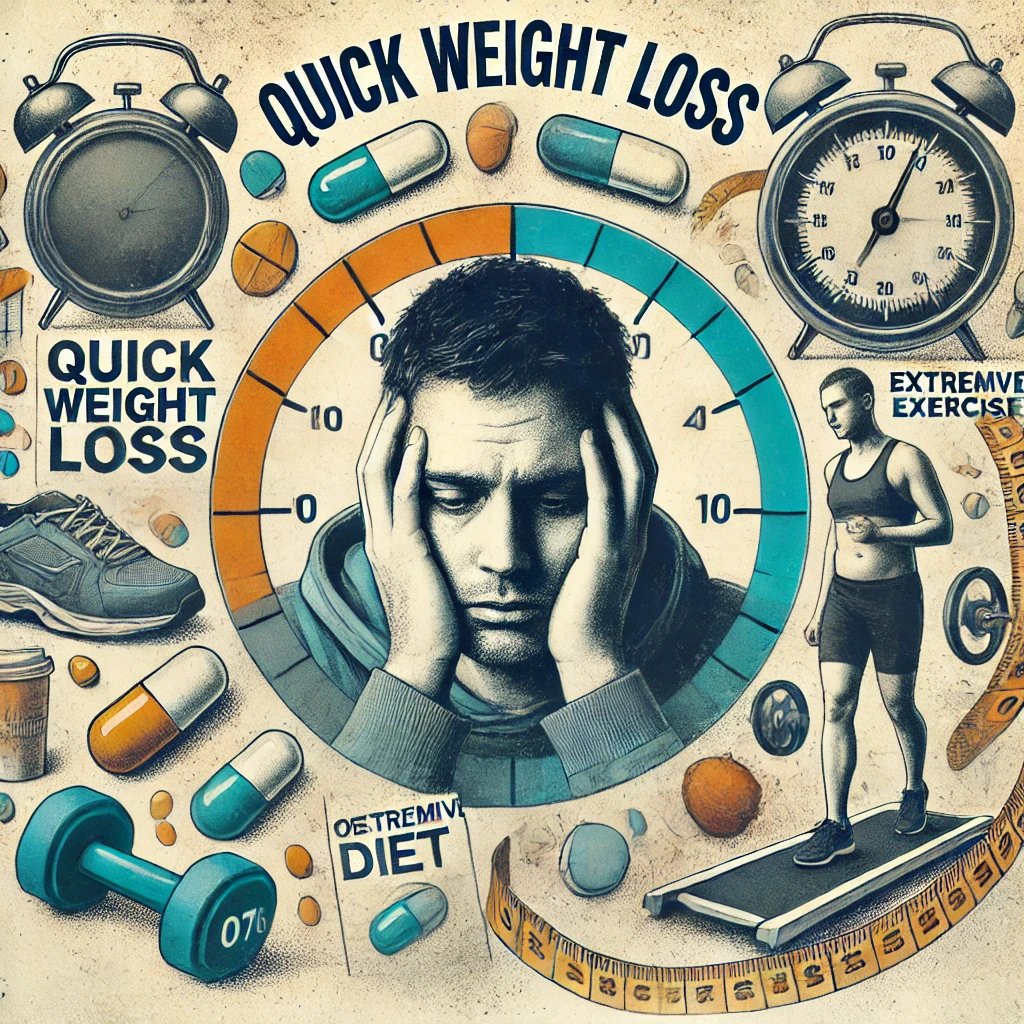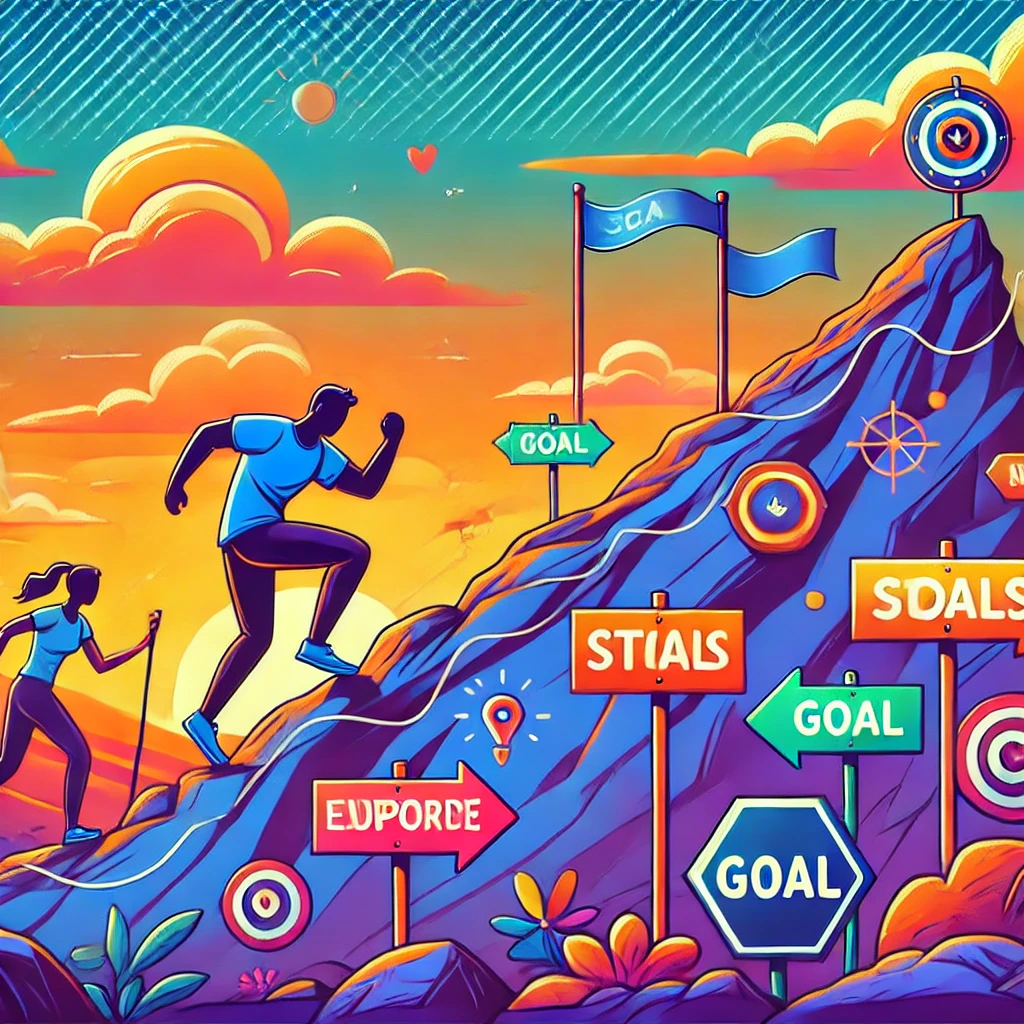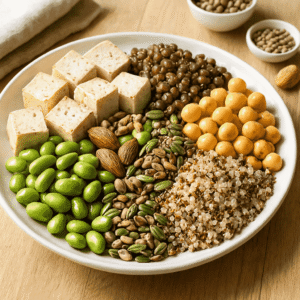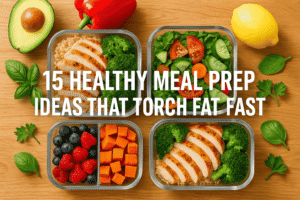
When it comes to weight loss, we’re often tempted by quick-fix solutions promising rapid results. However, these quick weight loss methods, like crash diets and extreme workout plans, rarely bring sustainable changes and can even harm our health. In contrast, sustainable weight loss emphasizes gradual, healthy changes that lead to long-term success. But what really works?
In this post, we’ll compare sustainable weight loss with quick-fix methods, discuss the benefits and drawbacks of each, and offer effective strategies for achieving lasting results. Let’s dive into the truth behind healthy weight loss.
Understanding Sustainable Weight Loss vs. Quick Fixes

Sustainable Weight Loss: This approach focuses on gradual changes in lifestyle, diet, and exercise to achieve and maintain a healthy weight over time. Sustainable weight loss doesn’t involve extreme dieting or deprivation; instead, it encourages a balanced diet, regular exercise, and the development of long-lasting habits.
Quick Weight Loss: Quick weight loss methods aim to shed pounds rapidly, often through fad diets, crash diets, or extreme calorie restriction. While they may lead to short-term results, these methods are typically unsustainable, often resulting in the “yo-yo effect” where weight is regained once the diet ends.
Why Choose Sustainable Weight Loss? The goal of sustainable weight loss is to create a balanced lifestyle that promotes overall health. Quick fixes may help you lose weight fast, but they can lead to muscle loss, nutritional deficiencies, and poor mental health. Sustainable weight loss is safer, healthier, and more likely to last.
The Science of Sustainable Weight Loss

How Healthy Weight Loss Works
Healthy weight loss involves a caloric deficit consuming fewer calories than your body needs to maintain its weight. However, a balanced deficit of 500-1000 calories per day, achievable through diet and exercise, is recommended for gradual and safe weight loss.
Why Quick Fixes Don’t Work Long-Term
Crash diets and other quick weight loss methods often lack essential nutrients, which can lead to fatigue, weakness, and an increased risk of binge eating. Additionally, rapid weight loss can slow metabolism, making it harder to maintain weight loss in the long run. Sustainable weight loss allows your body to adjust to changes gradually, minimizing these risks.
The Dangers of Quick Weight Loss

- Loss of Muscle Mass
Quick fixes that involve extreme caloric restriction can cause muscle loss. Unlike fat, muscle is metabolically active and helps burn calories even at rest. Losing muscle mass can slow down your metabolism, making it harder to keep the weight off. - Nutritional Deficiencies
Fad diets and crash diets often cut out entire food groups, which can lead to deficiencies in essential nutrients like vitamins, minerals, and fiber. These deficiencies can impact everything from energy levels to immune function. - Yo-Yo Dieting
Rapid weight loss and gain cycles, also known as yo-yo dieting, increase the risk of obesity and related health issues. It also leads to feelings of frustration and a negative relationship with food. - Mental Health Impact
Quick fixes can create a negative mindset toward food and body image, leading to guilt, frustration, and emotional eating. Sustainable weight loss, on the other hand, encourages a positive, balanced relationship with food.
The Benefits of Sustainable Weight Loss

- Long-Term Results
When you build a foundation of healthy habits, weight loss is more likely to be maintained over time. With sustainable weight loss, you gradually change your lifestyle to support your health and fitness goals. - Improved Health and Energy
Sustainable methods, like regular exercise and a balanced diet, not only aid weight loss but also improve heart health, boost energy, and enhance mental well-being. - Positive Relationship with Food
Instead of seeing food as the enemy, sustainable weight loss encourages a balanced perspective where food is nourishing and enjoyable. You can enjoy your meals without feeling deprived or restricted. - Better Muscle Retention
Sustainable weight loss usually includes strength training and protein intake to prevent muscle loss, helping maintain a higher metabolism and better physical function.
Effective Weight Loss Strategies for Long-Term Success

Achieving and maintaining a healthy weight requires a balance of diet, exercise, and behavioral changes. Here are some proven strategies to help:
Healthy Eating
- Whole Foods: Choose whole, unprocessed foods like fruits, vegetables, lean proteins, and whole grains. They’re nutrient-dense and keep you full longer.
- Portion Control: Eating in moderation can help maintain a calorie deficit without feeling deprived.
- Avoid Processed Foods: Processed foods are high in sugars, unhealthy fats, and calories. Reducing these can have a big impact on weight loss.
- Mindful Eating: Pay attention to hunger and fullness cues. Avoid distractions, like screens, while eating to help prevent overeating.
Regular Exercise
- Strength Training: Builds muscle, which helps burn more calories even at rest.
- Cardio: Activities like walking, jogging, or cycling increase calorie burn and support cardiovascular health.
- Consistency: Aim for at least 150 minutes of moderate exercise per week, or 75 minutes of vigorous exercise, to see results.
Building Healthy Habits
- Set Realistic Goals: Start small with achievable goals, like losing 1-2 pounds per week. Setting realistic goals keeps you motivated and reduces frustration.
- Track Progress: Use a journal or an app to track food intake, workouts, and changes in weight or body measurements.
- Stay Consistent: Small, consistent changes are more effective than extreme measures. Remember, consistency is key to sustainable weight loss.
Diet vs. Exercise: Which Matters More?

The Role of Diet
Diet plays a significant role in weight loss, as food choices and portion sizes directly impact calorie intake. A balanced, nutrient-rich diet is essential for long-term weight management.
The Role of Exercise
Exercise not only burns calories but also builds muscle, increases metabolism, and improves overall health. Combining both diet and exercise yields the best results for sustainable weight loss, as exercise supports muscle retention and metabolic health.
In short, diet and exercise work best together, creating a balanced approach that addresses both calorie intake and physical fitness.
Overcoming Challenges and Staying Motivated

- Set Small, Achievable Goals
Small victories keep you motivated. Celebrate each milestone—whether it’s a few pounds lost or a new fitness achievement. - Build a Support Network
Surround yourself with supportive friends, family, or a weight loss community. This support can provide motivation, accountability, and encouragement on tough days. - Find Enjoyable Activities
Engage in activities you enjoy, whether it’s dancing, hiking, or playing a sport. Making exercise enjoyable increases consistency and helps weight loss feel less like a chore. - Focus on Health, Not the Scale
Sometimes the number on the scale isn’t the best indicator of progress. Focus on how you feel, your energy levels, and your physical fitness.
Frequently Asked Questions (FAQs)
Q1: Is quick weight loss healthy?
A1: Quick weight loss often involves extreme methods that can lead to muscle loss, nutritional deficiencies, and slowed metabolism. It’s generally healthier to aim for gradual weight loss through sustainable changes.
Q2: What is the best way to lose weight and keep it off?
A2: The best way to lose weight and maintain it is through sustainable lifestyle changes that include a balanced diet, regular exercise, and consistent habits.
Q3: How can I lose weight without dieting?
A3: Focusing on mindful eating, portion control, and incorporating regular exercise can help with weight management without strict dieting.
Q4: How can I lose weight and gain muscle?
A4: To lose weight and gain muscle, combine a protein-rich diet with strength training exercises. This approach preserves muscle while burning fat.
Q5: What are the dangers of quick weight loss?
A5: Quick weight loss can result in muscle loss, slowed metabolism, nutritional deficiencies, and mental health impacts, making it unsustainable and potentially harmful.
Q6: How can I stay motivated to lose weight?
A6: Set realistic goals, track progress, find a support network, and focus on non-scale victories. Consistency and a positive mindset are key.
Conclusion
Choosing sustainable weight loss over quick fixes is a commitment to better health, balanced habits, and long-term success. While quick weight loss might seem appealing, it rarely produces lasting results and can be detrimental to both physical and mental health. By adopting healthy eating practices, incorporating regular exercise, and building positive habits, you’ll be on a steady path to achieving and maintaining your weight goals.
Take the first step toward a sustainable weight loss journey today, and remember: small changes can lead to big results over time.




